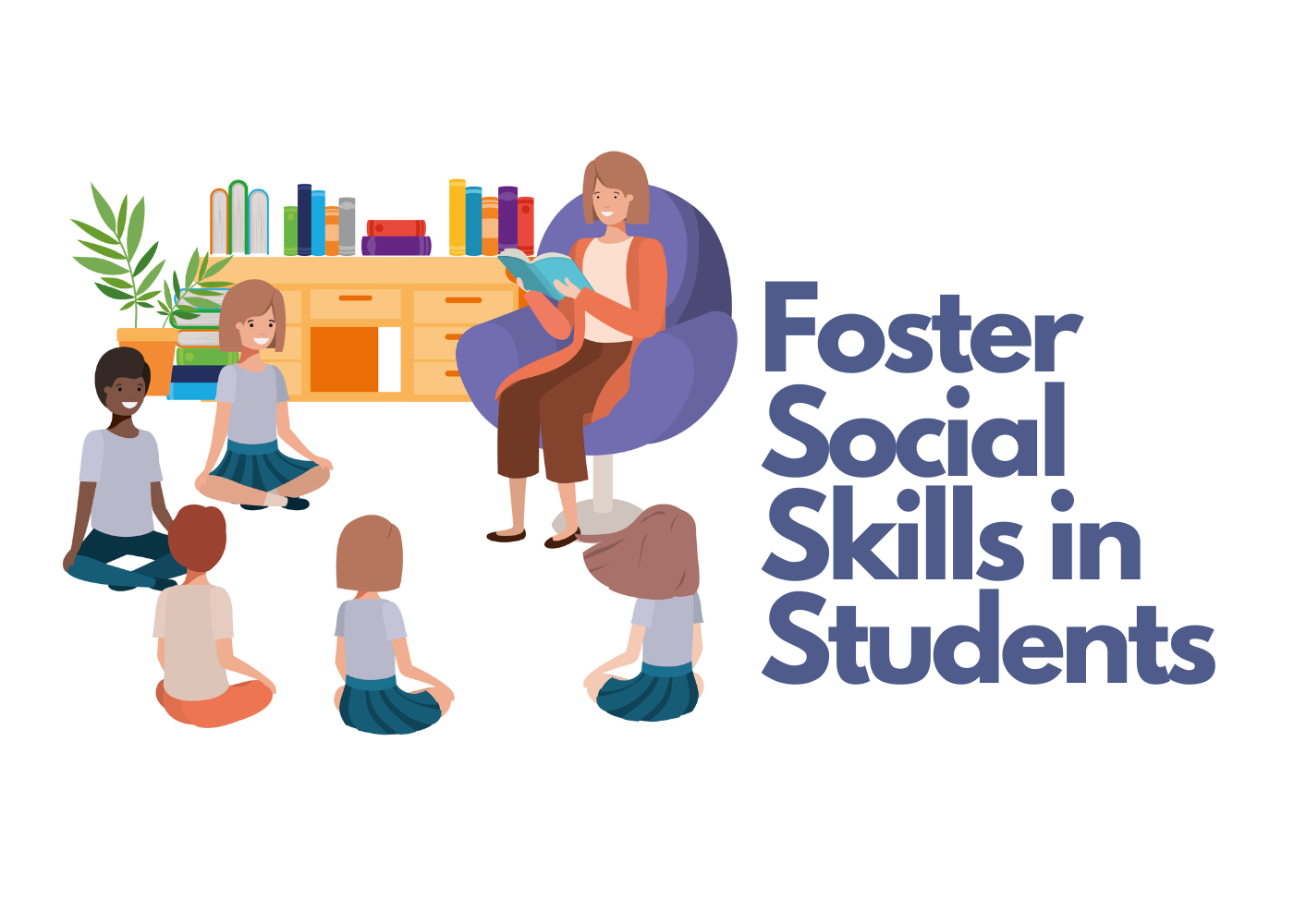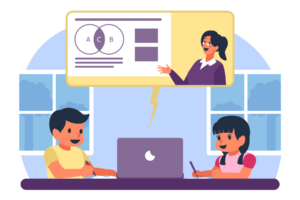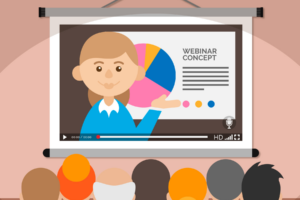How Teachers Can Foster Social Skills in Students

We live in a world today where academic knowledge alone is no longer sufficient for a student’s success. The ability to navigate social situations, collaborate effectively, and communicate confidently are essential skills that go hand in hand with academic prowess, in some cases taking a higher precedence than the latter.
According to a survey by the National Employability Report, teamwork and communication skills are among the most sought-after attributes by employers. As teachers, it is our responsibility to not only impart knowledge but also to nurture these critical skills in our students.
In this blog post, we will explore the importance of social skills, understand their impact on students’ lives, and discover practical strategies teachers can employ to develop these skills in your students.
Before we begin, let’s first understand the advantages of social skills.
Why Social Skills Matter
Social skills encompass a wide range of interpersonal abilities, including communication, empathy, active listening, teamwork, problem-solving, and conflict resolution. These skills are crucial for several reasons, here are the 4 top ones.
1. Academic Success
Strong social skills can lead to better academic outcomes. Students who can effectively communicate with teachers and peers are more likely to ask questions, seek help when needed, and participate actively in class discussions. This engagement often translates into improved learning and grades.
2. Personal Growth
Developing social skills fosters personal growth by enhancing self-esteem, self-confidence, and self-awareness. Students who can express themselves clearly and interact positively with others tend to have a more positive self-image.
3. Career Advancement
In the competitive job market, employers seek individuals who not only have the requisite technical skills but also possess strong social skills. The ability to collaborate, negotiate, and adapt to different work environments is highly valued.
4. Healthy Relationships
Good social skills are essential for building and maintaining healthy relationships, both in personal and professional life. These skills enable students to connect with others, resolve conflicts, and foster meaningful connections.
Practical Strategies for Teachers to Develop Students’ Social Skills
Now that we understand the importance of social skills, let’s explore practical strategies that teachers can implement to help students develop these vital abilities.
Certainly! Let’s expand on each of the ten practical strategies for teachers to develop social skills in their students:
1. Model Positive Behavior
Teachers have a profound impact as role models for their students. Demonstrating positive social behavior sets the tone for the classroom.
Here’s how teachers can model positive behavior.
Active Listening
When a student shares a concern or question, teachers should listen attentively, maintain eye contact, and respond empathetically. This shows students how to engage in meaningful conversations.
Respectful Communication
Teachers should address students with respect, using polite language and tone. They can also encourage respectful communication among students by intervening when necessary and highlighting the importance of courteous interactions.
2. Foster Inclusive Classrooms
Inclusivity is crucial for creating an environment where students feel safe and valued. Teachers can foster inclusivity in various ways such as by establishing ground rules and addressing bullying or discrimination.
Teachers should set clear classroom rules that promote respectful behavior, inclusion, and tolerance. Discuss these rules with students, ensuring their understanding and commitment to upholding them.
You should act promptly when incidents of bullying, discrimination, or exclusion occur. Address the issue privately with the involved parties and involve school authorities or counselors as needed.
3. Teach Active Listening
Active listening is the foundation of effective communication. Teachers can actively teach this skill through classroom activities and listening exercises. Incorporate activities that require active listening, such as pair-sharing discussions, group debates, or storytelling sessions. Encourage students to provide feedback on their peers’ listening skills.
Use audio recordings or videos to help students practice active listening. Discuss what they’ve learned and how they can apply these skills in daily life.
4. Peer Collaboration
Collaborative projects and group work offer valuable opportunities for students to develop social skills.
Assign group projects with clearly defined roles and responsibilities. Encourage students to communicate and delegate tasks, fostering teamwork and accountability.
After group activities, conduct debriefing sessions to reflect on the collaboration process. Discuss what went well, what challenges were faced, and how students can improve their teamwork in the future.
5. Role-Playing Exercises
Role-playing exercises is an effective way to simulate real-life social situations. Choose scenarios relevant to students’ age and experiences, such as conflict resolution with friends, job interviews, or customer service interactions.
After role-play exercises, provide constructive feedback on students’ communication and problem-solving skills. Encourage self-reflection by asking students what they learned from the exercise and how they can apply it in real life.
6. Emotional Intelligence Workshops
Emotional intelligence is key to understanding and managing emotions. Teachers can facilitate workshops that focus on the following:
- Emotion Identification: Help students identify and label their emotions. Share stories or examples that illustrate various emotional states to broaden their emotional vocabulary.
- Empathy Building: Engage in activities that promote empathy, such as discussing fictional scenarios or reading books that explore characters’ emotions. Encourage students to put themselves in others’ shoes.
7. Language Development
In a multilingual context like India, language proficiency is a valuable social skill. Create language clubs or exchange programs that encourage students to learn and practice different languages. This can promote cultural awareness and multilingual communication.
Provide access to language learning resources, such as books, online courses, or language apps, to support students in their language development journey.
8. Conflict Resolution Training
Conflict resolution is a critical social skill. Teachers can guide students through effective conflict resolution techniques through role modeling and peer mediation.
When conflicts arise in the classroom, model calm and constructive conflict resolution strategies. Encourage students to express their concerns and find mutually acceptable solutions.
Train selected students as peer mediators who can help resolve conflicts among their peers. This empowers students to take an active role in conflict resolution.
9. Community Engagement
Involving students in community service and extracurricular activities offers opportunities for social growth. Encourage students to participate in community service projects, such as volunteering at local charities or environmental initiatives. These experiences promote empathy and a sense of social responsibility.
Support the formation of clubs or societies related to students’ interests, where they can collaborate and engage with diverse groups of peers.
10. Feedback and Reflection
Lastly, ongoing feedback and self-reflection are essential for social skill development. Teachers should schedule regular one-on-one or group feedback sessions with students to discuss their social progress. Highlight areas of improvement and provide guidance on how to enhance their skills further.
You can also encourage students to maintain journals where they can reflect on their social interactions, noting instances where they applied specific social skills and the outcomes of those interactions.
By implementing these strategies, teachers can create a nurturing environment that fosters the development of essential social skills in their students, preparing them for success not only academically but also in their personal and professional lives within the diverse Indian context.
How to Measure Progress
Any strategy can be deemed good only if we can measure its impact. Therefore, even though, it’s difficult to rate a skill such as socialization, there are key indicators that can be largely helpful.
To gauge the effectiveness of the strategies mentioned above, teachers can use a combination of qualitative and quantitative methods:
- Observation:
Pay close attention to students’ interactions in the classroom and note any improvements or setbacks in their social skills. - Peer and Self-Assessment:
Encourage students to assess their own and their peers’ social skills periodically. This can be done through structured self-assessment forms or peer evaluations. - Surveys and Questionnaires:
Administer surveys or questionnaires to students, parents, and colleagues to gather feedback on students’ social development. Look for changes in perceptions and behaviors over time.
- Portfolio Assessment: Ask students to maintain a portfolio showcasing their growth in social skills. This can include written reflections, video recordings of presentations, and examples of collaborative work.
- Standardized Social Skills Assessments :Consider using standardized assessments designed to measure specific social skills. While these assessments may not capture the full range of social abilities, they can provide valuable data for tracking progress.
Social skills are essential for a student’s holistic development and future success in today’s interconnected world. Teachers play a pivotal role in nurturing these skills. You can empower students to become confident, empathetic, and socially competent individuals. As we invest in the social development of our students, we pave the way for a brighter, more harmonious future for the world.
We at TeachPro+ believe strongly in empowering the teaching and learning community with impactful resources, tools and techniques. Every week, we write about one such area that will be beneficial to the industry we serve. Please subscribe to our blog to be alerted as soon as we post on this blog.
Previous post




